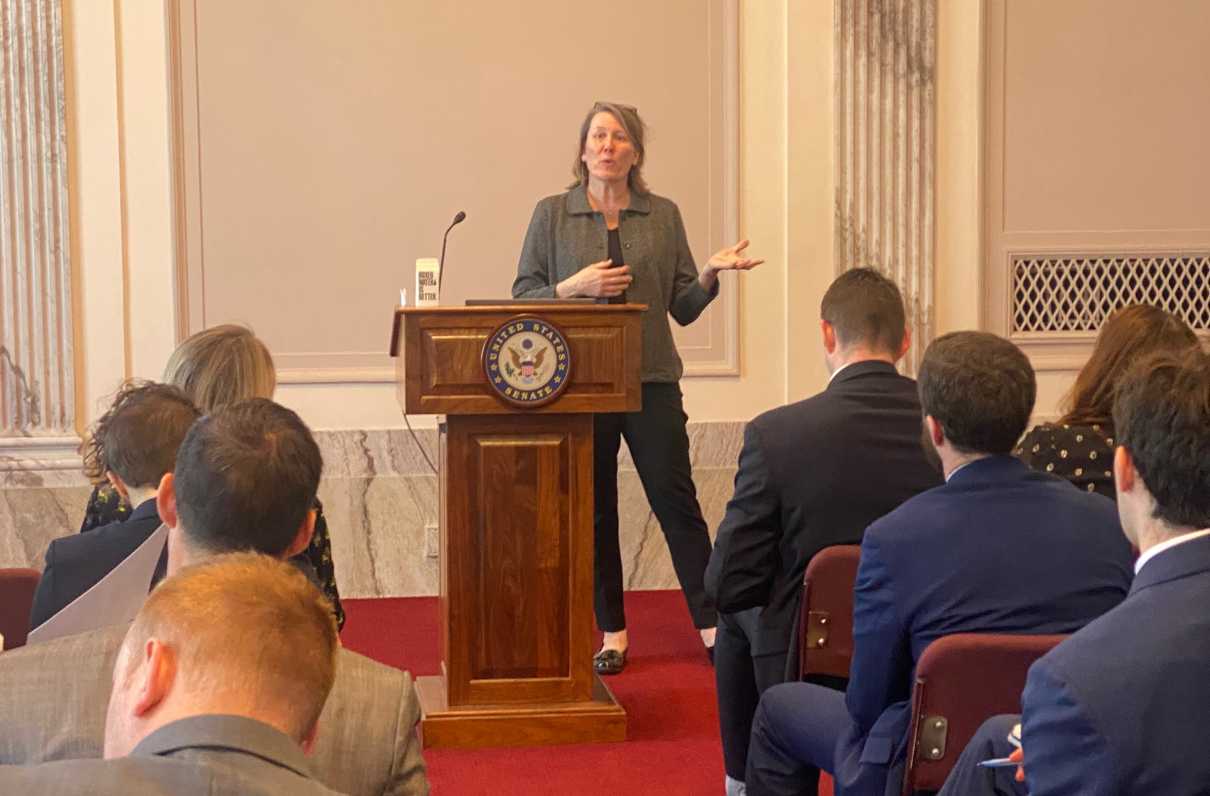The same day MOAA presented testimony to a joint Congressional panel on its legislative priorities for veterans in the 118th Congress, MOAA also took part in a “TRICARE 101” briefing held in the Russell Senate Office Building, bringing dozens of legislative staffers and fellow advocates up to speed on the latest changes and challenges within the military health care system.
MOAA partnered with the National Military Family Association (NMFA) for the event, which provided an overview of the TRICARE program and detailed several ongoing priorities for many military and veteran service organizations, to include:
- TRICARE Coverage Gaps: With an act of Congress often required to update coverage plans, TRICARE has fallen behind private-sector plans in areas such as chiropractic care and some lab and genetic testing procedures. There’s also the large gap in young adult dependent coverage – while civilian plans must keep dependents covered through age 26, TRICARE requires beneficiaries to purchase costly additional coverage for their young adult dependents.
[TAKE ACTION: Urge Your Elected Officials to Fix the TRICARE Young Adult Coverage Gap]
- TRICARE Pharmacy Network Cuts: The brick-and-mortar TRICARE network has dropped from nearly 55,600 outlets in September 2022 to less than 42,500 as of February 2023. This reduction comes after years of increased costs to beneficiaries, to include a 2018 spike in TRICARE Prime copays and the 2021 implementation of unprecedented enrollment fees for TRICARE Select retirees. While many of these cost increases have targeted working-age retirees, the pharmacy network reduction may create access problems for all TRICARE users, with the elderly, rural veterans, and those in need of special medication or in long term care facilities at greater risk of harm.
[TAKE ACTION: Help MOAA Fight Cuts to the TRICARE Pharmacy Network]
- MHS Access Challenges. The evolution of the military health system (MHS) is happening on all fronts, leaving ample opportunities for beneficiaries to fall through the cracks. Whether it’s proposed billet cuts, issues with electronic health record modernization, the transfer of military treatment facilities away from the service branches and into the Defense Health Agency (DHA), or overall health care workforce challenges, there’s no shortage of reasons why care could be delayed or denied. MOAA and other organizations will continue to support the creation of a problem reporting system, which would allow DHA to better track and address such access challenges.
“Events like these not only show MOAA’s standing on Capitol Hill, but also give staffers insight into what can be a complicated system, so they can better address the needs of their constituents,” said Karen Ruedisueli, MOAA’s director of Government Relations for Health Affairs, who gave the March 8 presentation. “We thank Congress for listening to MOAA’s concerns on these critical benefit issues, and we look forward to their support as we seek critical fixes to preserve the benefit.”
Get the latest on MOAA’s advocacy efforts at MOAA’s Advocacy News page.
MEDIPLUS® TRICARE Supplement
Works hand-in-hand with your Select or Prime Plan. Count on valuable protection.

